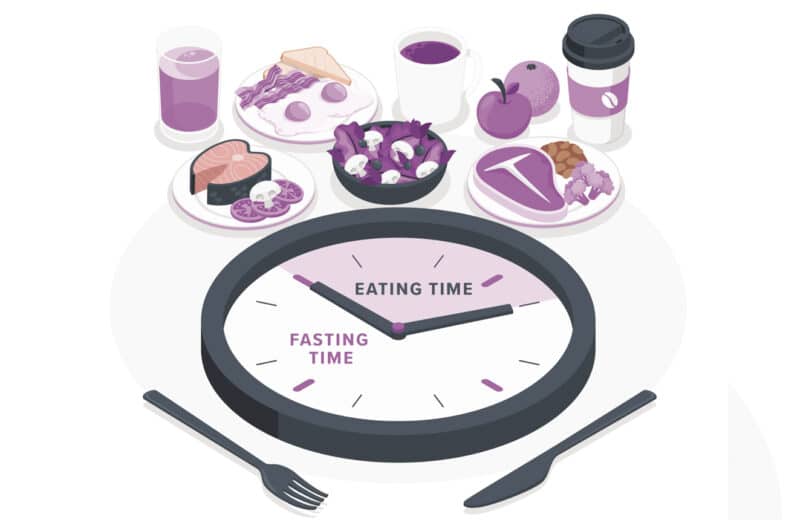By Marsha McCulloch, M.S., R.D., Environmental Nutrition Newsletter
It’s a popular notion that eating smaller, more frequent meals, such as six small meals a day, is a healthier approach than the traditional three square meals a day. Some people believe eating more frequently may help keep their hunger under better control and their metabolism revved up.
But some experts are concerned that the more often you eat, the greater your opportunity to overeat.
Consider these factors as you juggle such mixed messages:
1. The impact of meal frequency on appetite and weight
Although clinical studies in this area are limited, the majority of those available suggest that eating more often than three times a day provides minimal, if any, advantage in controlling appetite or how much you eat, although eating less than three times a day could make it tougher to control your appetite. Most studies also show that eating more often than three times a day doesn’t improve weight loss success, nor does it boost metabolism.
So how did the positive buzz about small, frequent meals begin?
“The research that led to the hypothesis that eating more frequently is a better way to go was predominantly observational research, which means it can’t show cause and effect; plus, there were issues of under-reporting by overweight and obese individuals, who reported eating less frequently than they really did,” says Hollie Raynor, Ph.D., R.D., associate professor of nutrition at the University of Tennessee at Knoxville and research chair of the weight management dietetic practice group of the Academy of Nutrition and Dietetics.
“Basic eating studies that have fed people in very controlled settings have not found that eating more frequently helps people feel less hungry during the day,” she adds.
2. What about blood sugar and cholesterol?
“Although it’s often thought that people with diabetes need to eat more often to maintain their blood sugar, research is emerging that suggests eating more frequently may not improve blood sugar control in people with diabetes,” Raynor says.
Additionally, the limited research available on eating frequency and cholesterol levels is contradictory, with a few studies showing a benefit of mini meals and others showing no advantage.
3. Sensible advice on eating schedules
If you’re keeping your weight in check with three meals a day and prefer to eat this way, stick with it. However, if you’re ravenous at mealtime if you skip snacks, you may need to tweak how often you eat and/or the types of foods you’re eating.
Follow these guidelines:
a) Balance eating frequency with amount. The more often you eat, the less you should eat at a time, otherwise you’re just adding calories to the day.
“For example, if someone is following a 1,200-calorie weight loss diet and eating six times a day, that may mean only 200 calories per eating occasion,” Raynor says. Such a small lunch or dinner could leave you feeling unsatisfied.
b) Make it nutritious. Pass up high-sugar, quick pick-me-ups and processed foods, which are easy to overeat. Choose nutrient-rich, fiber-packed foods, such as whole grains, fruits, vegetables and nuts, and include a good source of protein, such as beans, dairy, or meat to improve satiety (fullness).
c) Plan ahead. Avoid mindless nibbling all day long, and carry healthful snack options with you when you’re on the go.
4. When mini-meals help
While the jury is out on whether smaller, more frequent meals can help you lose weight, an over-full stomach or big gaps between meals may aggravate certain medical concerns, including:
a) Chronic obstructive pulmonary disease (COPD), in which breathing may become more difficult with a full stomach
b) Gastric bypass surgery, especially in the early months after surgery, but not necessarily long-term
c) Gastroesophageal reflux disease (GERD), frequently signaled by heartburn
d) Gastroparesis (slow stomach emptying), often found in people with diabetes
e) Reactive hypoglycemia, in which blood sugar falls below normal (less than 70 mg/dL) within 2-4 hours after a meal
(Reprinted with permission from Environmental Nutrition, a monthly publication of Belvoir Media Group, LLC. 800-829-5384. www.EnvironmentalNutrition.com.)












